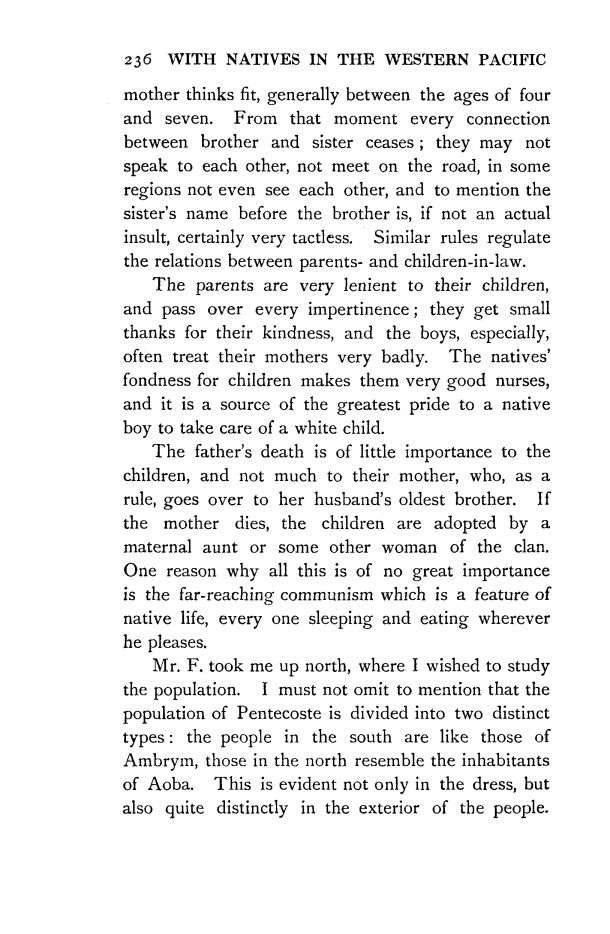|
|  [Note: this transcription was produced by an automatic OCR engine]
236 WITH NATIVES IN THE WESTERN PACIFIC
mother thinks fit, generally between the ages of four
and seven. From that moment every connection
between brother and sister ceases; they may not
speak to each other, not meet on the road, in some
regions not even see each other, and to mention the
sister’s name before the brother is, if not an actual
insult, certainly very tactless. Similar rules regulate
the relations between parents- and children-in-law.
The parents are very lenient to their children,
and pass over every impertinence; they get small
thanks for their kindness, and the boys, especially,
often treat their mothers very badly. The natives’
fondness for children makes them very good nurses,
and it is a source of the greatest pride to a native
boy to take care of a white child.
The father’s death is of little importance to the
children, and not much to their mother, who, as a
rule, goes over to her husband’s oldest brother. If
the mother dies, the children are adopted by a
maternal aunt or some other woman of the clan.
One reason why all this is of no great importance
is the far-reaching communism which is a feature of
native life, every one sleeping and eating wherever
he pleases.
Mr. F. took me up north, where I wished to study
the population. I must not omit to mention that the
population of Pentecoste is divided into two distinct
types: the people in the south are like those of
Ambrym, those in the north resemble the inhabitants
of Aoba. This is evident not only in the dress, but
also quite distinctly in the exterior of the people.
|